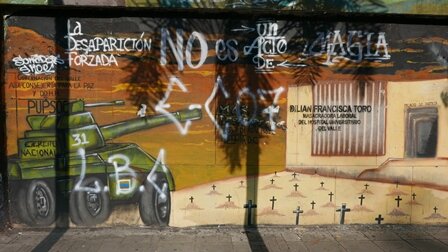Press releases
New publication \ Organised crime as a cause of forced displacement—Lessons learned from Latin America
In Colombia, the peace agreement of 2016 ended the armed fighting between the government and the guerilla group FARC. Nevertheless, some regions experienced an increase in organised crime and associated violent displacement after the agreement was signed. BICC Policy Brief 7 \ 2019 recommends acknowledging organised crime as a cause of displacement and taking preventive action.

While the population in many urban centres of the country benefited from the peace agreement in terms of security, the situation in many communities in the periphery deteriorated due to attacks, assaults, collateral damage and military actions. The use of arbitrary and criminal violence—both by the state and non-state violent actors—is part of everyday life in Colombia. As the violence-related causes of displacement persist in most areas, only a few internally and internationally displaced persons return. Moreover, new and mostly unrecorded forms of forced displacement have emerged.
In BICC Policy Brief 7\2019 "Organised crime as a cause of forced displacement. Lessons learned from Latin America", author Markus Rudolf makes the following policy recommendations:
\ Recognise organised crime as a cause of forced displacement and take preventative action;
\ Understand Latin America as a precedent;
\ Return to the Geneva Convention on Refugees.
In BICC Policy Brief 7\2019 "Organised crime as a cause of forced displacement. Lessons learned from Latin America", author Markus Rudolf makes the following policy recommendations:
\ Recognise organised crime as a cause of forced displacement and take preventative action;
\ Understand Latin America as a precedent;
\ Return to the Geneva Convention on Refugees.


